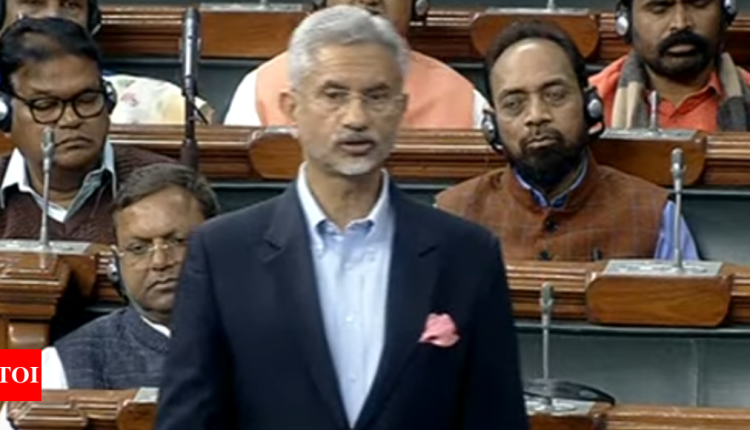NEW DELHI: Lok Sabha witnessed a rare show of bonhomie across treasury and opposition benches as the House almost unanimously passed the Anti Maritimes Piracy Bill 2019 on Monday, by a voice vote.
While most opposition parties spoke in favour of the Bill even bringing certain amendments, foreign minister S Jaishankar began his reply in the House by thanking the standing committee members who vetted the Bill and declaring that all the 18 recommendations that members had suggested had been accepted by the government and those had actually helped bring the right “balance” in the legislation.
The Anti-maritime Piracy Bill, 2019 seeks to provide an effective legal instrument to combat piracy not only in territorial waters and the exclusive economic zone (EEZ) but also on the high seas.
Jaishankar said keeping in mind the observations of the Supreme Court that death penalty should be in rarest of rare cases and the fact that many nations do not extradite the accused in view of the provision of capital punishment, the act of piracy on high seas will be an offence punishable with imprisonment for life or with death.
Speaking in House during the discussion on the Bill, Jaishankar said “The official amendment has provided punishment for life. Earlier, there was provision for death. Now, the provision for death has been amended as per government amendment to punishment to death or with imprisonment for life, if such a person is committing the act of piracy and causes death or an attempt thereof.”
“The concern that there will be a mandatory death sentence is no longer relevant in view of the government amendment which actually provides for death or life imprisonment depending on the nature of the circumstances,” added the Minister.
Lok Sabha took up the Bill for consideration on December 7. Notably, the Bill will empower Indian authorities to deal with piracy on the high seas beyond the exclusive economic zone which is 200 nautical miles from the country’s coastline.
While most opposition parties spoke in favour of the Bill even bringing certain amendments, foreign minister S Jaishankar began his reply in the House by thanking the standing committee members who vetted the Bill and declaring that all the 18 recommendations that members had suggested had been accepted by the government and those had actually helped bring the right “balance” in the legislation.
The Anti-maritime Piracy Bill, 2019 seeks to provide an effective legal instrument to combat piracy not only in territorial waters and the exclusive economic zone (EEZ) but also on the high seas.
Jaishankar said keeping in mind the observations of the Supreme Court that death penalty should be in rarest of rare cases and the fact that many nations do not extradite the accused in view of the provision of capital punishment, the act of piracy on high seas will be an offence punishable with imprisonment for life or with death.
Speaking in House during the discussion on the Bill, Jaishankar said “The official amendment has provided punishment for life. Earlier, there was provision for death. Now, the provision for death has been amended as per government amendment to punishment to death or with imprisonment for life, if such a person is committing the act of piracy and causes death or an attempt thereof.”
“The concern that there will be a mandatory death sentence is no longer relevant in view of the government amendment which actually provides for death or life imprisonment depending on the nature of the circumstances,” added the Minister.
Lok Sabha took up the Bill for consideration on December 7. Notably, the Bill will empower Indian authorities to deal with piracy on the high seas beyond the exclusive economic zone which is 200 nautical miles from the country’s coastline.


